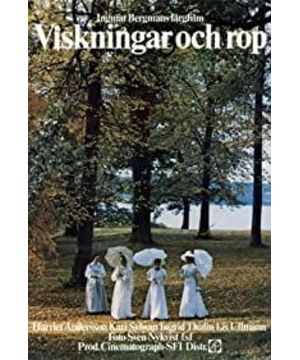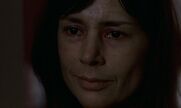The story Cries and Whispers is narrated by a feminist perspective.
"Mother" in this film is unconcerned and reckless, unless she and her daughter share the sadness. It's like a default and mutual communication without words, but it's unplanned.
Female's desire in Bergman's films is not satisfied completely even sometimes beyond morality. Furthermore, they are undoubtedly still thirsty and desperate regardless of morality as usual via their undisguised eye contact, words and behavior.
Maria tries to be active and trying to take the initiative in the ambiguous relationship with the doctor, but she is judged by his values, and she judges herself by his values about age, laziness and indifference. Then, she doubts and changes herself in a painful way in order to struggle for male's mercy. However, female is able to relieve and cure themselves by listening and comforting. More importantly, they always give priority to honesty towards males, life and themselves, which is more courageous and intelligent than males.
One potential explanation might be that this film is a sort of reflection of Bergman's personally growing experience.
Dissolution between different identifications.
Expressionist decor.
Should “female” be seen as a group or individuals?
View more about Cries & Whispers reviews











